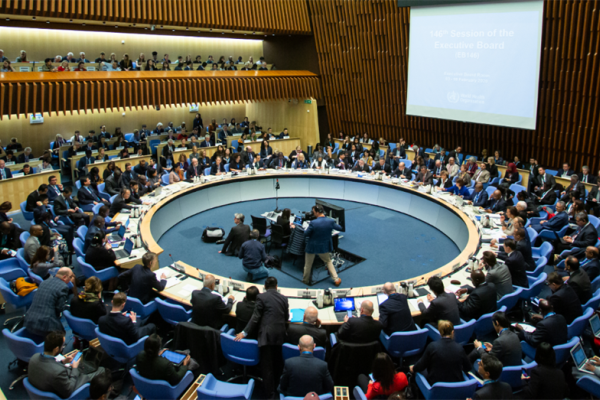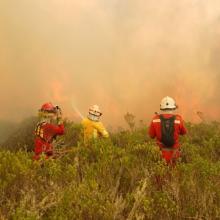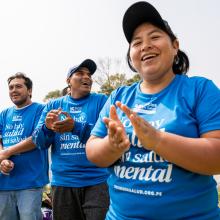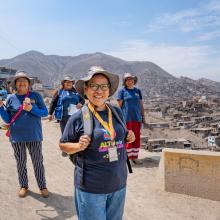On October 10, during World Mental Health Day, Carmen Contreras, director of the Mental Health Program (SAME) of Socios En Salud, attended the World Health Organization (WHO) Mental Health Forum in Geneva, Switzerland.
The event brought together mental health leaders and authorities from around the world, and the head of SAME had the opportunity to present Socios En Salud’s experience in community mental health care, with projects such as the implementation of sheltered homes for people with chronic mental disorder, strategies to address maternal mental health, among others.
Contreras highlighted that this was her first time at a mental health event of such magnitude. “It has allowed me to share mental health experiences from the perspective of mental health authorities and leaders worldwide. ‘Sharing’ has been the phrase that has been repeated the most during my conversations,” she expressed.
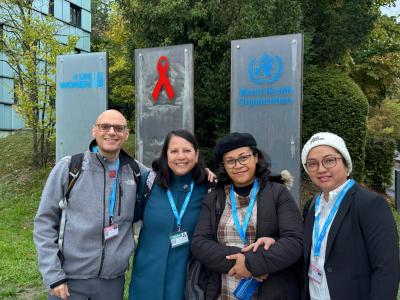
La directora del Programa de Salud Mental de SES, Carmen Contreras (segunda a la izquierda), junto al coordinador de Salud Mental y Apoyo Psicosocial de USAID, Jerome Galea (primero a la izquierda); la especialista en desarrollo de proyectos de USAID, Bakoseheno Rakotonavalona (tercera la derecha); y la especialista en gestión de proyectos (Salud Materna e Infantil) de USAID, Ma Myo Aye (cuarta a la derecha), en los exteriores de la sede de Ginebra (Suiza) de la OMS.
Foto de Socios En Salud
During the forum, the SAME director identified several ideas and learnings that could be applied in her work in Peru. Among these, she highlighted the importance of offering continuous trainings, including virtual ones, to strengthen the team’s knowledge, and the relevance of continuing to use mental health platforms to improve care.
In addition, he stressed the need to maintain an active presence at upcoming WHO meetings and to continue working directly with communities, supporting people suffering from mental health problems together with professionals and community health agents.
In contact with global institutions
On the other hand, Contreras emphasized the importance of Socios En Salud being present at international events such as this forum. “Learning and sharing are two words that sum up my participation. Connecting with professionals who already have more experience in interventions in other mental health problems that Socios En Salud has not yet addressed is essential to continue improving our initiatives,” she said.
And the WHO forum also opened up new opportunities for collaboration for Socios En Salud, especially at the Latin American level and with recognized academic institutions. In this regard, the director of SAME highlighted the possibility of collaborating with Johns Hopkins University (JHU) on programs aimed at adolescents living with HIV.
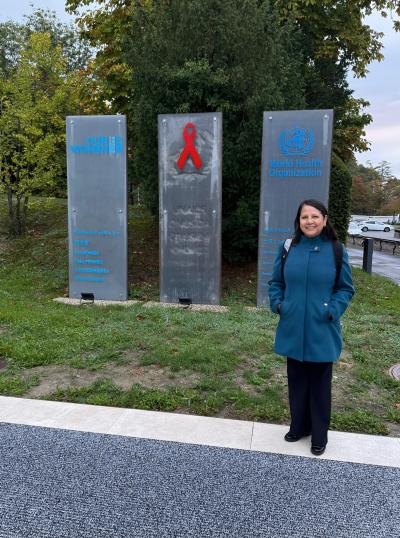
La directora del Programa de Salud Mental, Carmen Contreras, presentó la experiencia de Socios En Salud en el Foro de Salud Mental organizado por la OMS.
Foto de Socios En Salud
“I was very pleased that primary health care was valued, there was a lot of talk and SES does this work. The links that I find interesting at the Latin American level are to work with the team in Chile to address the problem of epilepsy; with the University of Washington (USA) to implement more studies using technology,” she said.
She also stressed that work such as that carried out by the University of London motivates her to explore new community actions in the area of autism.
Partners In Health’s participation in the WHO Mental Health Forum underscores its ongoing commitment to strengthening primary mental health care and building strategic alliances to address global mental health challenges. The experience and learnings gained at this event will allow SES to continue to improve its interventions and expand its impact in the communities that need it most.
